
15.9K
Downloads
474
Episodes
Access Agriculture is a non-profit organisation that showcases agricultural training videos in local languages. We strive to promote the transition towards agroecology and organic farming across the global South. To impact on rural livelihoods, please explore Access Agriculture.
Access Agriculture is a non-profit organisation that showcases agricultural training videos in local languages. We strive to promote the transition towards agroecology and organic farming across the global South. To impact on rural livelihoods, please explore Access Agriculture.
Episodes
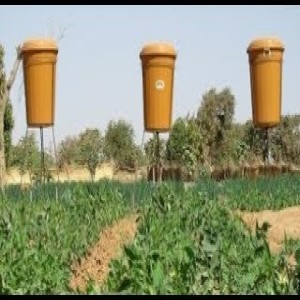
Wednesday Mar 01, 2023
Drip irrigation for tomato (Summary)
Wednesday Mar 01, 2023
Wednesday Mar 01, 2023
Farmer groups and individuals in Burkina Faso explain the benefits and challenges of a low-cost drip irrigation system, and show how such a system is set up. A social innovation is included that relates to organic matter management.
Download the full audio podcast in different languages at : www.AccessAgriculture.org
Available languages :
Adja | Bambara | Bangla | Bariba | Buli | Chichewa / Nyanja | Chitonga / Tonga | Dagaare | Dagbani | Dioula | Español | Ewe | Fon | Frafra | Francés | Gonja | Gourmantche | Hausa | Hindi | Idaatcha | Inglés | Kabyé | Kannada | Kanuri / Kanouri | Kinyarwanda / Kirundi | Kiswahili | Kusaal | Lobiri | Luganda | Moba | Mooré | Persa / Farsi | Peulh / Fulfuldé / Pulaar | Portugués | Sisaala | Telugu | Tumbuka | Wolof | Yoruba | Zarma | Árabe
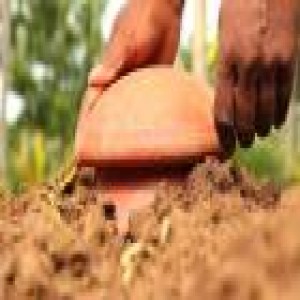
Thursday Sep 30, 2021
Pitcher irrigation (Summary)
Thursday Sep 30, 2021
Thursday Sep 30, 2021
With pitcher irrigation, round porous clay pots are buried into the soil near the crop and filled with water. The water seeps out slowly through the porous walls of the pot and reaches the roots of the plants. As the plants consume the water, more water will seep out from the pot. In this way, the pot provides exactly the right amount of water needed for the plants.
Download the full audio podcast in different languages at: www.accessagriculture.org
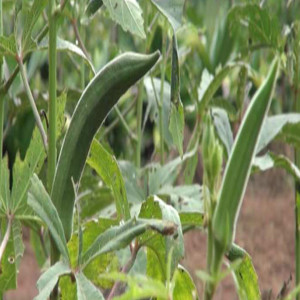
Wednesday Sep 08, 2021
Taking care of okra (Summary)
Wednesday Sep 08, 2021
Wednesday Sep 08, 2021
Too much drought can slow down growth and cause young fruits to fall. Water your okra regularly to avoid slowing down its growth. Get rid of weeds. Nourish okra crops by periodically applying a little compost, well-rotted manure or litter around the base of each okra plant.
Download the full audio podcast in different languages at: www.accessagriculture.org
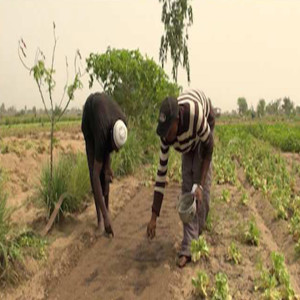
Tuesday Sep 07, 2021
Making a good okra seeding (Summary)
Tuesday Sep 07, 2021
Tuesday Sep 07, 2021
In Benin, producers tell us how to plant okra properly. Put no more than 2 to 3 seeds in each hole and plant at proper spacing to let in air and allow the plants to develop well.
Download the full audio podcast in different languages at: www.accessagriculture.org
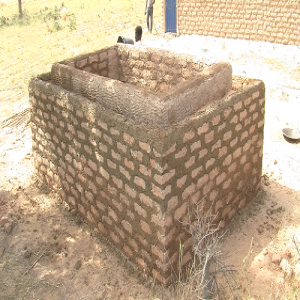
Friday Aug 27, 2021
Making a cooling chamber for tomatoes (Summary)
Friday Aug 27, 2021
Friday Aug 27, 2021
When you pick your tomatoes, if you want to keep them longer, you have to find a way of reducing the temperature. As availability of electricity at village level can be a problem, ways have to be found to lower the temperature of this fragile crop. Some farmers at Dambatta in Kano State, Nigeria have used local mud bricks to make a very effective cooling chamber.
Download the full audio podcast in different languages at: www.accessagriculture.org

Thursday Aug 26, 2021
Staggering production of tomatoes (Summary)
Thursday Aug 26, 2021
Thursday Aug 26, 2021
If you are growing tomatoes you need to make sure that you don’t just grow when everyone else is, or you will probably suffer from very low prices. Working in a group and staggering your production can provide a constant market supply of fresh tomatoes.
Download the full audio podcast in different languages at: www.accessagriculture.org
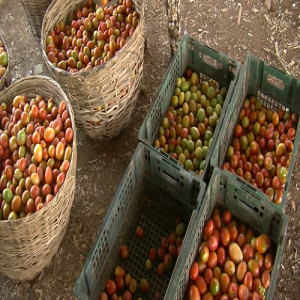
Wednesday Aug 25, 2021
Good handling of tomatoes (Summary)
Wednesday Aug 25, 2021
Wednesday Aug 25, 2021
As soon as you pick your tomatoes their quality can only ever decrease. The best you can do is to slow down the reduction of quality, by following some practices which reduce damage and harm. The key to getting good quality tomatoes to sell starts with the pickers. If they can avoid damaging the crop, we have a chance.
Download the full audio podcast in different languages at: www.accessagriculture.org
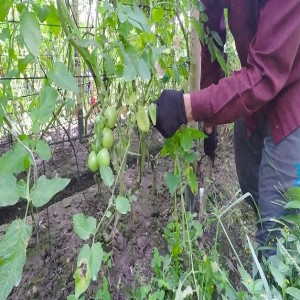
Monday Aug 16, 2021
Managing tomato late blight (Summary)
Monday Aug 16, 2021
Monday Aug 16, 2021
Late blight is caused by moulds that survive in the soil and in residues of crops that had the disease. As the disease spreads very fast, inspect your field every day. If you see sick plants, cut of the sick parts of the plant and burn the affected parts. Never put sick plant parts on your compost as the mould will continue to grow and spread to your field.
Download the full audio podcast in different languages at: www.accessagriculture.org
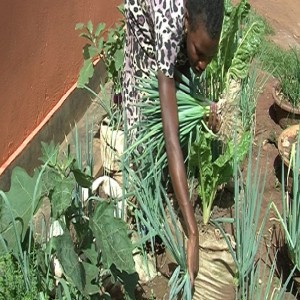
Wednesday Aug 04, 2021
Using sack mounds to grow vegetables (Summary)
Wednesday Aug 04, 2021
Wednesday Aug 04, 2021
The best compost for sack mounds is the one made using poultry manure and plant remains. If you use such compost, the sack mound will yield a lot of vegetables for a long time.
Download the full audio podcast in different languages at: www.accessagriculture.org
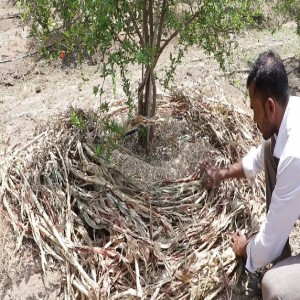
Thursday Jul 29, 2021
Mulch for a better soil and crop (Summary)
Thursday Jul 29, 2021
Thursday Jul 29, 2021
You can make mulch from any locally available, dry plant material such as grass, or straw. Mulching is easy. And above all, it helps to save you water, time and labour whilst at the same enriching your soil and giving you a better harvest.
Download the full audio podcast in different languages at: www.accessagriculture.org

Friday Jul 16, 2021
Managing black rot in cabbage (Summary)
Friday Jul 16, 2021
Friday Jul 16, 2021
Most farmers confuse black rot disease with downey mildew. Whereas mildew starts as purplish irregular spots on the leaves, black rot starts as small, yellow-brown, V-shaped areas at the leaf margins.
Download the full audio podcast in different languages at: www.accessagriculture.org
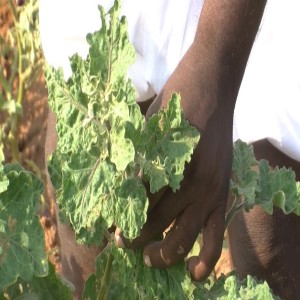
Friday May 14, 2021
Managing tomato leaf curl virus (Summary)
Friday May 14, 2021
Friday May 14, 2021
Tomato leaf curl cannot be cured by any product. The disease is spread by whiteflies. The best way to control the disease is through prevention. A net house can protect your nursery. A border of cereals around your vegetable field helps keep whiteflies out. Farmers in southern India tell us yellow sticky traps, natural pesticides and various other methods.
Download the full audio podcast in different languages at: www.accessagriculture.org
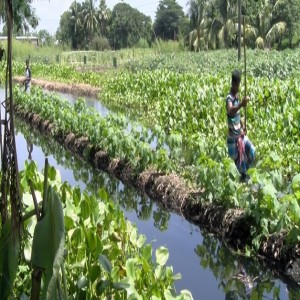
Friday May 14, 2021
Floating vegetable gardens (Summary)
Friday May 14, 2021
Friday May 14, 2021
As our land remains under water during the rainy season, our ancestors were already thinking of ways to produce crops in order to survive. They invented the floating garden by using crop residues. We do not need any chemical fertilizers or pesticides, because the floating bed is fertile by nature.
Download the full audio podcast in different languages at: www.accessagriculture.org
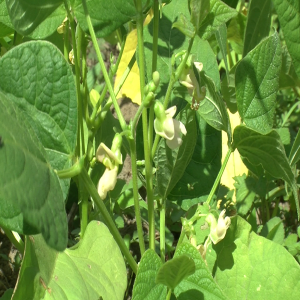
Thursday May 13, 2021
Conserving bean leaf vegetables (Summary)
Thursday May 13, 2021
Thursday May 13, 2021
Bean leaves are rich in proteins and vitamins. To have them available during the dry season, you can dry and store them.
Download the full audio podcast in different languages at: www.accessagriculture.org
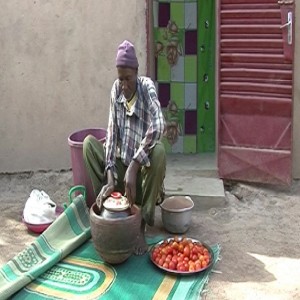
Wednesday May 12, 2021
Storing fresh and dried tomatoes (Summary)
Wednesday May 12, 2021
Wednesday May 12, 2021
You can store fresh tomatoes in a local fridge for a few weeks. A local fridge consists of two earthen pots, placed one inside the other and separated with sand. In addition to storing fresh tomatoes, they can also be dried and used any time. Dried tomatoes can be stored for a year.
Download the full audio podcast in different languages at: www.accessagriculture.org
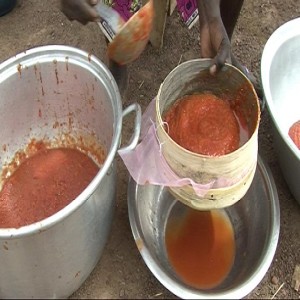
Friday Apr 09, 2021
Tomato concentrate and juice (Summary)
Friday Apr 09, 2021
Friday Apr 09, 2021
During the lean season, tomatoes become very scarce and consumers buy canned tomatoes at high prices or no longer eat tomatoes. But by processing tomatoes into concentrate, you can use it for one year. And tomato juice can be used for 2 to 3 weeks.
Download the full audio podcast in different languages at: www.accessagriculture.org
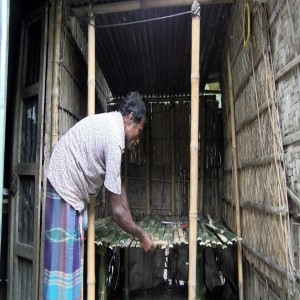
Wednesday Mar 24, 2021
Making a raised platform for sheep and goats (Summary)
Wednesday Mar 24, 2021
Wednesday Mar 24, 2021
In traditional sheds, sheep and goats are often kept on the ground. The animals are in direct contact with their urine and droppings. Because of poor hygiene many animals get sick. You can easily make a raised platform inside your existing shed to solve these problems.
Download the full audio podcast in different languages at: www.accessagriculture.org
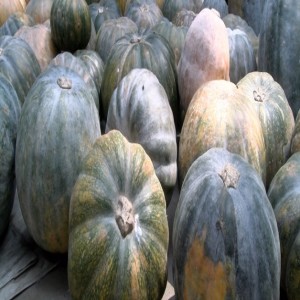
Wednesday Mar 24, 2021
Sorting and storing pumpkins (Summary)
Wednesday Mar 24, 2021
Wednesday Mar 24, 2021
Farmers selling pumpkins right after harvest get a low price because there are so many.
They can sell them at a better price during the off-season by storing them.
Download the full audio podcast in different languages at: www.accessagriculture.org
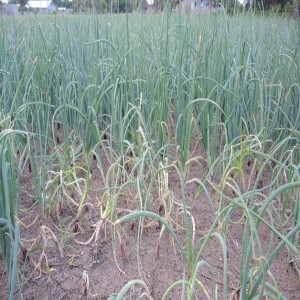
Monday Dec 21, 2020
Managing onion diseases (Summary)
Monday Dec 21, 2020
Monday Dec 21, 2020
Onions grow well under many different conditions, but when grown in the rainy season onions have a greater chance of getting sick. Onion diseases can make the leaves fold and reduce your yield. Diseases can spread with soil, seed or infested crop residues.
Download the full audio podcast in different languages at: www.accessagriculture.org
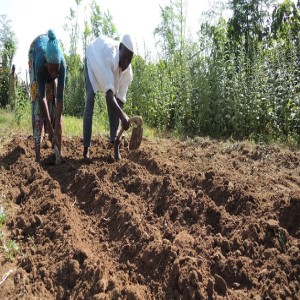
Friday Dec 18, 2020
How to make a fertile soil for onions (Summary)
Friday Dec 18, 2020
Friday Dec 18, 2020
Onions have few roots and shallow roots and therefore can take up nutrients from the top soil only. This explains why it is crucial to pay particular attention to making your soil fertile when you want to grow onions.
Download the full audio podcast in different languages at: www.accessagriculture.org
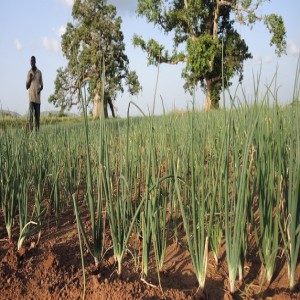
Friday Dec 18, 2020
Installing an onion field (Summary)
Friday Dec 18, 2020
Friday Dec 18, 2020
Onions need rich, fertile soil. Only grow onions once in 3 years in the same field. Plant the onions on raised beds, especially in the rainy season. Transplant when the onions are about 6 weeks old. Plant the onions 10 centimetres apart. By taking good care of your onions, the onions will take good care of you.
Download the full audio podcast in different languages at: www.accessagriculture.org
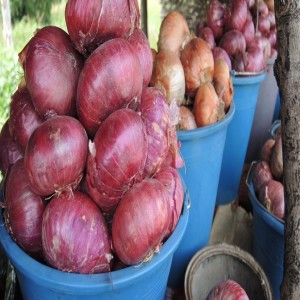
Monday Dec 14, 2020
The onion nursery (Summary)
Monday Dec 14, 2020
Monday Dec 14, 2020
Onion seedlings need a healthy, loose soil. Add well-aged manure or compost. In the rainy season you need to raise the seedbed so the onion roots will not rot. If you use quality seed, most of the seed will germinate and you need much less of it. Onion seedlings need room to grow, so do not plant them too close together. Put the seed in lines, 5 to 10 centimetres apart and 1 centimetre deep. Cover the seeds lightly with fine soil.
Download the full audio podcast in different languages at: www.accessagriculture.org
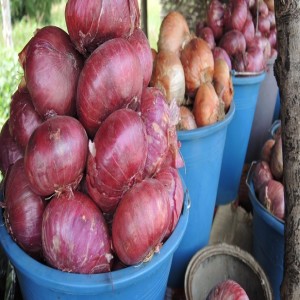
Monday Dec 14, 2020
Making more money from onions (Summary)
Monday Dec 14, 2020
Monday Dec 14, 2020
Let us learn from the experiences of some innovative farmers in Ghana who make more money: by producing onions when there are few of them on the market; by storing them until the price comes up again; and by selling directly to clients in urban markets.
Download the full audio podcast in different languages at: www.accessagriculture.org
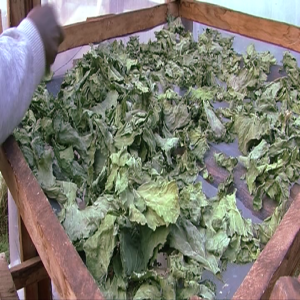
Wednesday Oct 07, 2020
Solar drying of kale leaves (Summary)
Wednesday Oct 07, 2020
Wednesday Oct 07, 2020
Farmers and vegetable sellers find it hard to sell leafy vegetables even a day after harvest because the leaves spoil quickly, but solar drying allows farmers to reduce losses and sell leafy vegetables out of the main harvest season.
Download the full audio podcast in different languages at: www.accessagriculture.org
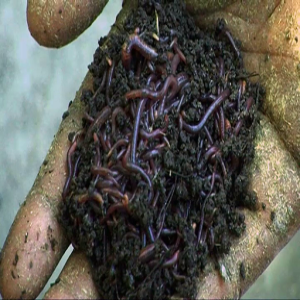
Thursday Sep 17, 2020
The wonder of earthworms (Summary)
Thursday Sep 17, 2020
Thursday Sep 17, 2020
Earthworm compost can increase soil fertility and help increase the production of vegetables in poor and salty soils. Here we will learn about a fast and easy way to make earthworm compost on a small piece of land.
Download the full audio podcast in different languages at: www.accessagriculture.org
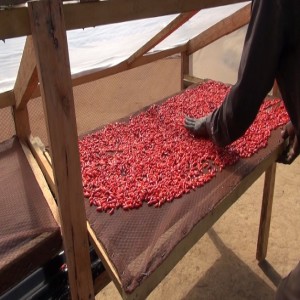
Wednesday Sep 16, 2020
Solar drying of chillies (Summary)
Wednesday Sep 16, 2020
Wednesday Sep 16, 2020
When chillies remain moist, moulds develop and the chillies will go bad. Some moulds produce a poison, called aflatoxin, which is toxic to people. To speed up drying and to dry your food hygienically you can use a solar dryer that uses the heat of the sun to dry fruits and vegetables. Solar dryers come in many shapes and sizes, but the principles stay the same. In this audio podcast, we will learn how to make and use a simple solar dryer to dry chillies.
Download the full audio podcast in different languages at: www.accessagriculture.org
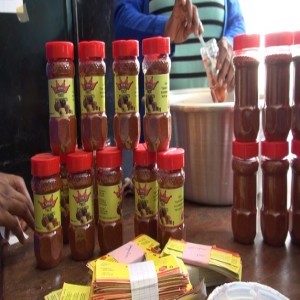
Wednesday Sep 16, 2020
Making chilli powder (Summary)
Wednesday Sep 16, 2020
Wednesday Sep 16, 2020
It is very important to have a product that doesn’t change, that is of the same quality, the same taste, the same colour and that is well presented.
Download the full audio podcast in different languages at: www.accessagriculture.org
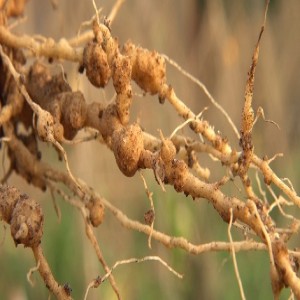
Wednesday Sep 16, 2020
Managing vegetable nematodes (Summary)
Wednesday Sep 16, 2020
Wednesday Sep 16, 2020
Nematodes are dreadful worms that live in the soil and in the roots of many different crops and weeds. Nematodes are easier to prevent than to control. The secret is to: grow healthy seedlings; destroy all sources of nematodes in and near your vegetable field; rotate with crops that are resistant to nematodes; and avoid introducing nematodes from other fields. Farmers in southern Benin tell us how to control nematodes.
Download the full audio podcast in different languages at: www.accessagriculture.org
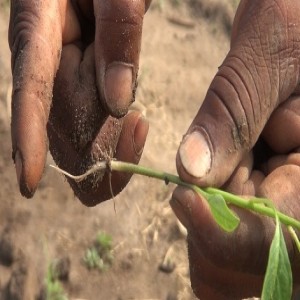
Tuesday Sep 15, 2020
Transplanting chillies (Summary)
Tuesday Sep 15, 2020
Tuesday Sep 15, 2020
This audio podcast features the importance of good planning and knowledge. We can reduce losses by following good practices when installing the seedbed, preparing the field and transplanting chilli seedlings.
Download the full audio podcast in different languages at: www.accessagriculture.org
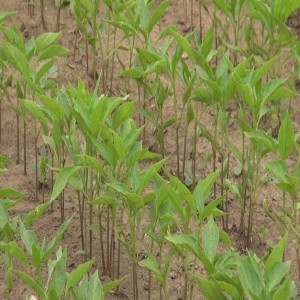
Tuesday Sep 15, 2020
Making a chilli seedbed (Summary)
Tuesday Sep 15, 2020
Tuesday Sep 15, 2020
Use quality seeds in a seedbed of one meter wide. Make furrows about every 15 cm. Do not sow too many seeds too close together or the seedlings will be too tall and weak and they will break easily when transplanted. Protect the seedbed from the hot sun and hard rains by covering it with straw, palm leaves or other mulch. Protect the seedlings from pests and animals by putting an insect net over your seedbed. Transplant the seedlings at the right stage. Strong and healthy seedlings are the best start for a healthy and productive crop.
Download the full audio podcast in different languages at: www.accessagriculture.org
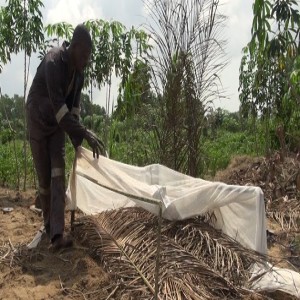
Tuesday Sep 15, 2020
Insect nets in seedbeds (Summary)
Tuesday Sep 15, 2020
Tuesday Sep 15, 2020
Grasshoppers and snails can be a serious problem for any vegetable seedbed as they chew the tender stems of seedlings. Caterpillars can also cause damage, but more so on tomato and cabbage than on chilli.To protect their young crops many farmers use pesticides. While pesticides are expensive, they are also dangerous for the health of farmers, consumers and the environment. You can protect your seedlings by putting an insect net over them.
Download the full audio podcast in different languages at: www.accessagriculture.org
